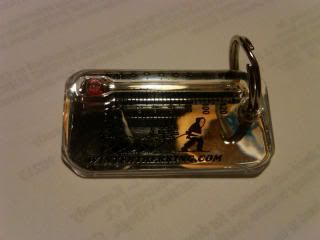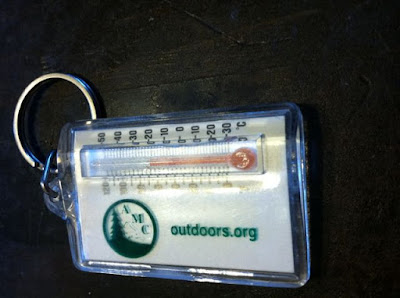Let not forget two things about the cold and electronics.
1) Batteries hate cold. The amount of amps being delivered to the circuit is greatly reduced as the ambient temperature is lowered. [graph deleted]
The graph is for a lead-acid traction battery. (Not used in winter hiking.)
Different battery chemistries have different sensitivities to the cold. The graph in question should treated as a generic example in this context and not be applied to the battery types used in hiking--alkaline, NiMH (rechargeable), or Lithium Ion (rechargeable), lithium primary. (Listed in worst-to-best order for cold tolerance.)
Your graph is also for a 6hr discharge rate--some devices draw more current, some less. In general lower a current draw reduces the effects of cold on a battery.
2) LCD's hate cold. As the temperature goes down, the ability of the liquid crystal to change properties (that is to become displayed) slows to the point that no display will be produced. Ever notice your GPS displays slows in the winter time?
LCDs come in a variety of operating temperature ratings--GPSes have outdoor-rated LCDs which have a greater temp range than the indoor-rated LCDs found on, for instance, phones and watches. My Garmin GPSes also have an internal temperature sensor--one of its uses is to temperature compensate the LCD.
I've never had any problems reading my GPS in the cold.
If you really need a thermometer for the winter, I'd stick with the good old analog. I have an old one hang on my pack also. Booth are almost always in agreement.
I carry a small zipper-pull alcohol thermometer with a small compass in my pack.
http://www.rei.com/product/408183/rei-therm-o-compass I rarely pull it out*--I can generally estimate the temperature closely enough for my needs.
* I also carry a better compass--this one is a backup.
I used to carry a good thermometer for measuring the snow temp for XC ski waxing, but again I can estimate the temperature adequately from the snow conditions.
Doug


